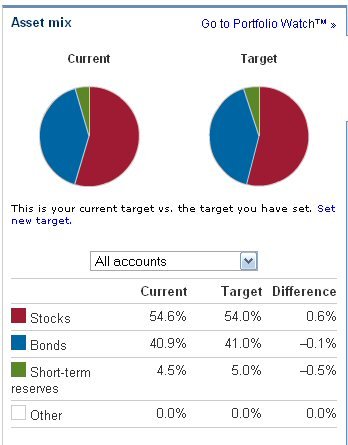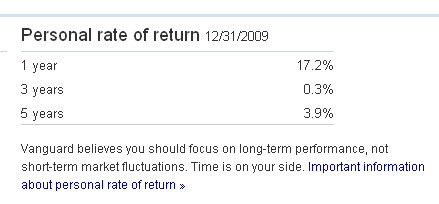Thanks for the replies, a few comments...
Here are some examples:
"Oh, wow, I've been trying to cut back on X, but I see now that that only saves me an insignificant amount, so I'll stop cutting back on that."
OK, kind of the opposite way to look at it from the normal view, but just as valuable. I guess I tend to look at this on a case by case basis - when I find myself fretting or taking action on something, I'll calculate the cost of that item that I was wondering about. For example, a bunch of outside lights (mostly CFLs) on a timer - ends up less than $2/month. Move on.
I spent $10,000 more last year, but I see that it was only because of the unexpected medical procedure.
We love eating out, but I didn't realize how much we are spending on it. I'd rather cut back, and spend that money on cable TV.
I do track (or at least see) my total cash flow. So if I see that my check account buffer is dwindling, it would cause me to look into it.
Why am I wasting my time washing baggies, when health insurance premiums are my main expense?
Similar to above, but an important distinction. If I have taken steps to get the best value from my Health Insurance (or any big ticket item), then there is nothing more to do there. But if washing baggies (or other small cost savings) actually provides a savings, then it helps (in a small way). This actually relates to one of those (ahhh, can't think of the proper name) economic conundrums that people face. A $10 savings is a $10 savings. It makes no difference if it was a $10 savings on a $20 expenditure or a $5,000 expenditure. At the end of the year, there is an extra $10 in your pocket.
For example, do I want to dine out every month or buy that new TV I've been thinking of, since I can't do both and max out every other category?
Yes, and this seems to be met by my being aware of my total cash flow.
So, I guess it comes down to is:
A) Monitoring at a high level overview (monthly cash flow), and jumping on "problem areas", along with some occasional "auditing" of specific expenditures
versus
B) Monitoring everything all the time?
I'll make a car analogy - would I want to continuously see every sensor reading that goes into my cars computer, or just respond when the "Check Engine" light comes on? Along with regular check ups to monitor key systems?
Different strokes for different folks an all, I'm just not getting the motivation to dig into the nitty-gritty like some do. Maybe because if I did, I would think I would need to take it all the way to really get any value out of it. A $300 bill at Costco tells me nothing - I'd need to break that receipt down to food, occasional clothing, tools, (where do you put things like Toilet Paper?), cleaning supplies, liquor, entertainment, whew..... At that point, I don't think I could see the forest for the trees?
-ERD50




 . But at this point, the choice isn't between the conf call and a spreadsheet, I have better options
. But at this point, the choice isn't between the conf call and a spreadsheet, I have better options